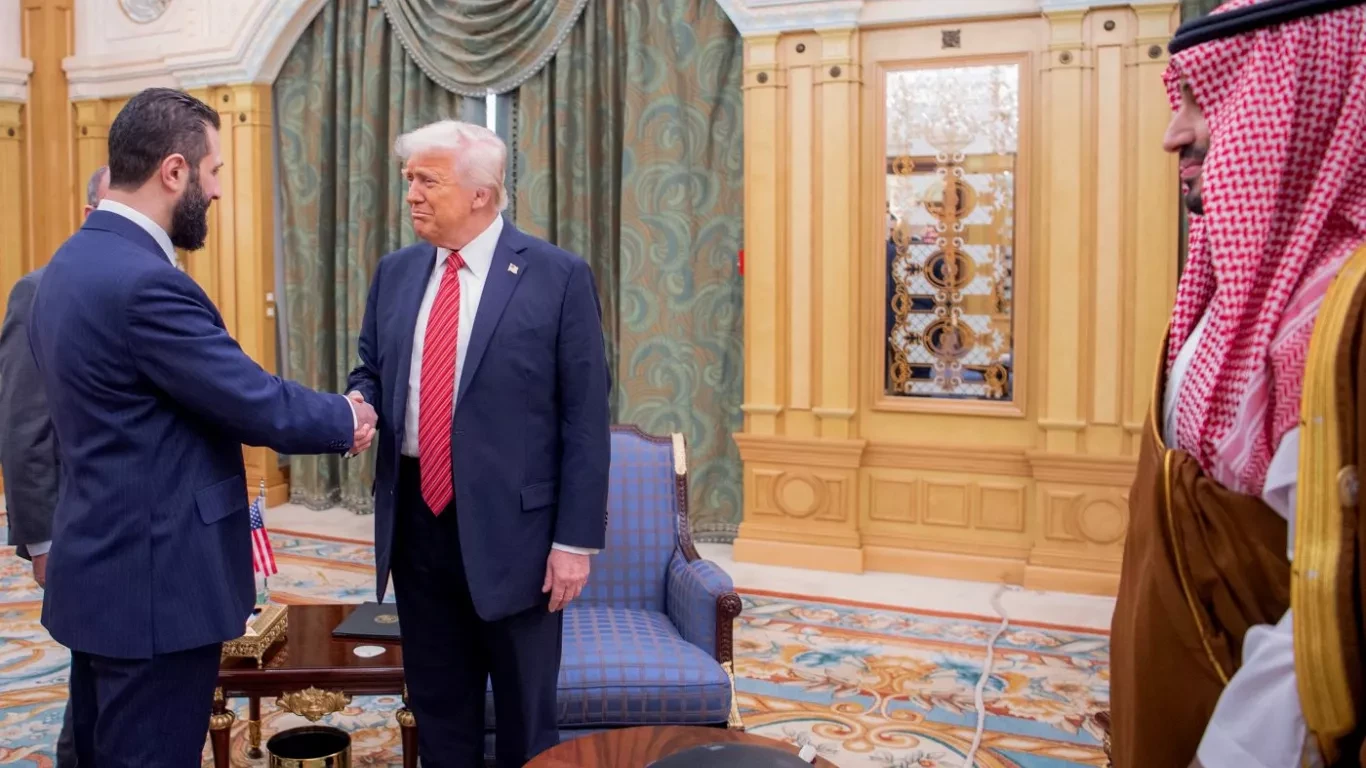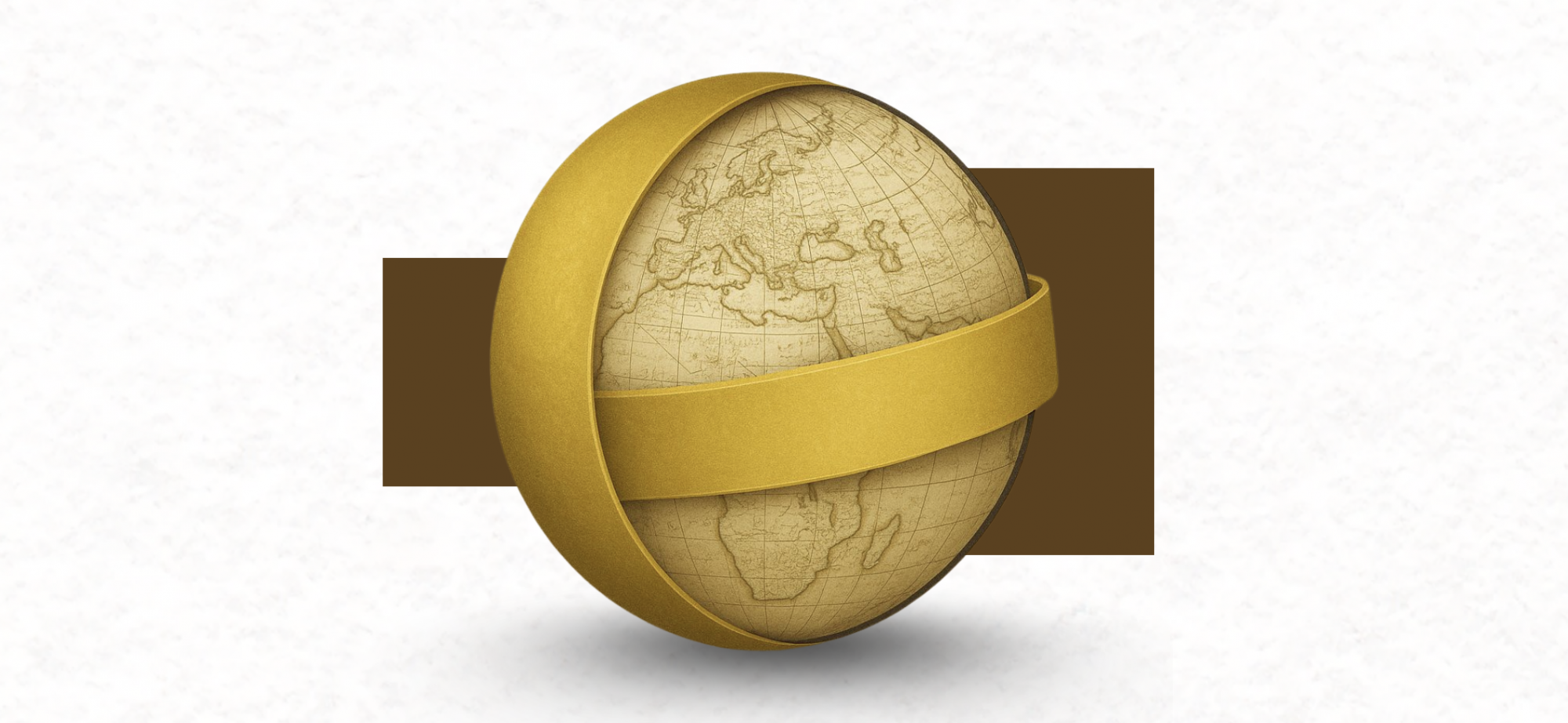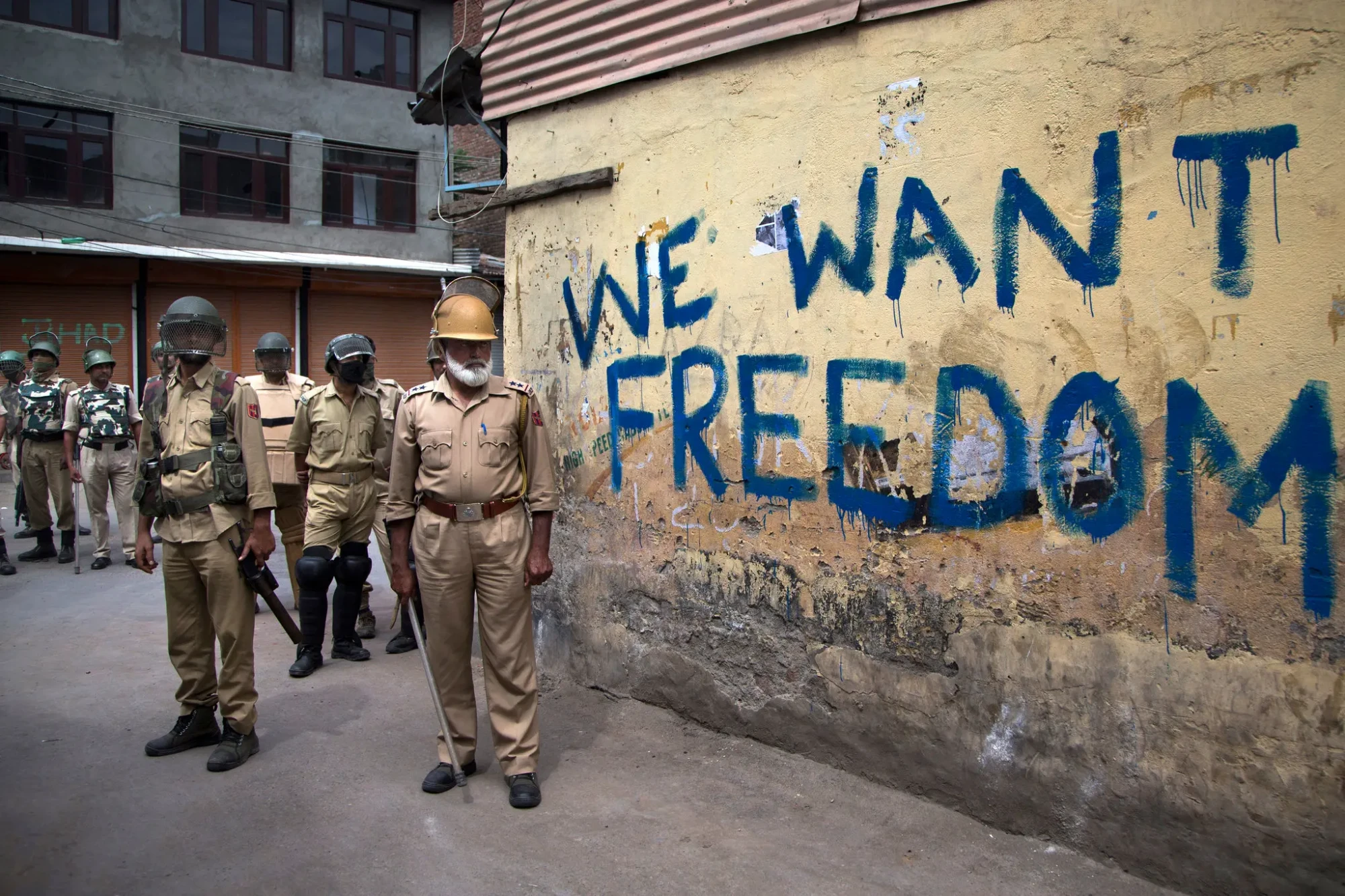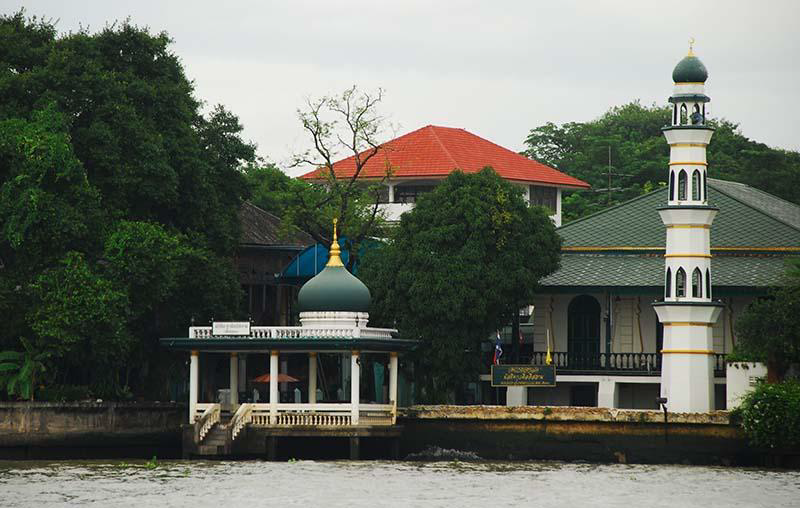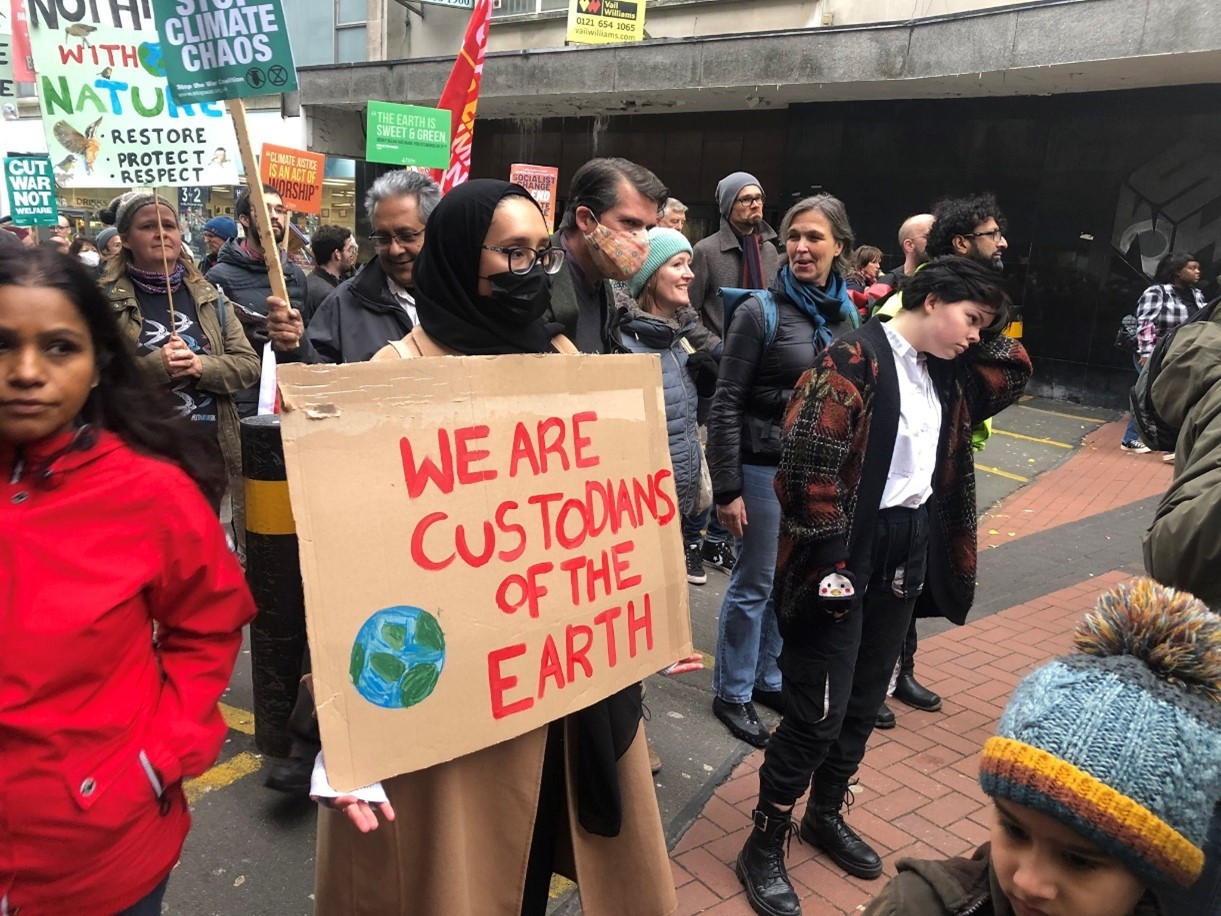
Muslims Going Green Globally and Locally
Islam shapes the worldview of close to two billion people in the world today. Its theology of nature, or eco-theology, has inspired a movement voicing its concern and acting in response to the climate and ecological crisis. From the minbars of Cape Town to the coral reefs of Zanzibar, from the pesantren in Indonesia to the green masjid in Canada, Muslims are drawing on the teachings of Islam in the pursuit of a sustainable and just world.
Muslims also make up the majority in many of the countries that will be vulnerable to climate change, so they must be part of the dialogue and solutions around climate action. What are the activities of civil society in the Muslim world in the field of climate and ecology? Which organizations exist in which regions, and what kind of activities do they carry out? What can Muslim civil society do in the field of ecology? This paper will answer these questions in relation to Muslim civil society, including examples of Muslim environmental organizations and civil societies all around the world.
What climate and environmental actions are Muslims taking?
The burgeoning ”green” movement amongst Muslims spans multiple efforts rooted in Islam’s eco-theology, which includes the establishment of practical initiatives that are compatible with and rooted in Islamic norms, according to Richard Foltz.
Muslim organizations have joined forces to develop statements such as charters and declarations that represent Islam’s eco-theology. The eco-theology of Islam is based on the sovereignty of the Creator, the just and responsible trusteeship of humankind, and the intrinsic value of creation. It requires Muslims to understand the balance, the mizān, in which the world was created, and to seek to live within this balance. And increasingly, Muslim organizations are incorporating this eco-theology into their action, as will be discussed in this paper. In this regard, The Islamic Declaration on Sustainable Development (2002) and the Islamic Declaration on Global Climate Changes (2015) were both released at key inter-governmental processes to present Muslim perspectives on the global challenges of sustainable development and climate change, respectively. Drafted by a team of international religious and environmental scholars and activists, Al-Mizan: A Covenant for the Earth (2024) represents the Muslim response to the climate and ecological crisis. It offers practical guidance for Muslim environmental stewardship and seeks to act as a “platform to link environmental issues with Islamic teachings and embrace Islamic views on nature.”
The green banner of Islam is being held aloft by a cadre of Muslim eco-warriors who are showing, through words and actions, that in being true to the teachings of Islam, every Muslim is required to exercise responsible stewardship on planet Earth. The landscape of educational institutions in the Muslim world has served as a primary conduit for the environmental message of Islam. Dr. Fachruddin Mangunjaya, a leading voice for green Islam in Indonesia, engages pesantren (Muslim boarding schools) and religious leaders in the country, whom he believes need to be involved “intensively with environmental issues” (Mohamed, 2018). According to Mangunjaya, the place “to start with is Muslim institutions who need a deep understanding of the Islamic ethic” to propel these institutions to become more “practically involved through environmental actions.” In this sense, religious leaders, teachers, and Muslim institutions, such as mosques, constitute the bedrock for raising awareness of the ecological teachings of Islam and ensuring that it becomes a part of every Muslim’s daily life. The Green Mosque Initiative serves as an inspiration for the potential to also green these institutions and shows how ten mosques from around the world can install solar energy systems at their sites to demonstrate and show how Muslim institutions can go green.
While the ecological message of Islam springs from within the heart of the community, it has impacted and been implemented in many areas of social life. This includes the greening of institutions and guidance for integrating sustainability in key festivals and celebrations, such as A Guide to an Eco-conscious Ramadhaan and the Green Guide for Hajj and Umrah. National and local groups engage in a wide range of community activities and educational programs to raise awareness of Islam’s environmental message. This includes efforts such as clean-up campaigns, recycling programs in mosques, and tree planting. The EcoMuslim “works with some of the world’s leading people to grow the branches between ‘green’ faith and social action” and provides practical guidance to Muslims on how to live a greener life. Dutch environmentalist Rianne ten Veen’s 199 Ways to Please God book aims to inspire positive action by providing practical guidance for environmental actions, organized around four key areas of Islamic life: beliefs, worship, transactions, and moral character. Among the 199 actions that ten Veen identifies is managing finance in a sustainable way, e.g, supporting charitable endowments (waqf) that benefit the environment; adopting sustainable diets and lifestyles e.g. eating healthy and sustainable food and not wasting waste; and buying better quality clothes which respect environmental and worker rights. Hence, these initiatives, premised on the ecological teachings of Islam, are indicative of the growing environmental movement amongst Muslims.
Where are the Catalysts for Change in the World?
Among the leading voices of the Islamic environmental movements are the Islamic Foundation for Ecology and Environmental Sciences (IFEES) and Ummah for Earth, which both present a global voice on Islam, ecology, and climate. Since its establishment in the 1980s, IFEES has been internationally recognized for articulating the Islamic position on the environment and supporting climate and environmental actions throughout the Muslim world, from Zanzibar to Indonesia. IFEES has also produced guidance such as the Muslim Green Guide to Reducing Climate Change and plays a central role in the development and dissemination of Al Mizan. Ummah for Earth was created in 2020 and is an alliance-led initiative, with the goal to empower Muslim communities who are facing climate and ecological crises. Many of the leading eco-Islamic organizations and contemporary thinkers are now partners in this alliance. Ummah for Earth has produced guidance on how to green Ramadhaan and Hajj and also represents the Muslim voice on climate and ecological justice at international climate conferences.
Global charities that operate in the Muslim world, such as Islamic Relief and Muslim Hands, have established significant environmental programs. For instance, Islamic Relief has been contributing to efforts to address the worst impacts of climate change and to limit global warming to 1.5°C. They were central to the development of the Islamic Declaration on Global Climate Change and have developed a Climate Change Policy that guides their humanitarian work. Muslim Hands have also been prioritizing environmental sustainability in their projects, offering a wide range of environmental projects in key sectors that will be impacted by climate change, such as water, agriculture, and transport.
There is also a wide range of national institutions and platforms that are focused on local climate and environmental action, and many of them have been established by Muslim youth. In South Africa, the campaign Green Deen South Africa emerged from a student movement, providing a platform for exchange for Muslims in the country working on green issues. Two Billon Strong is also a UK youth-led platform established to “help Muslims around the world to join the conversation on climate injustice” (Two Billion Strong, n.d.). Eco-Pesantren in Indonesia has initiated a wide range of water, energy, land, and agriculture programs, premised on Islamic teachings. Young Muslims are now playing a leading role in civil society organizations and community organizations advocating for action on climate and environmental issues.
How can all Muslim Civil Society go Green?
Social good defines the work of Muslim civil society. However, climate and environmental breakdown will pose an existential threat to social good, impacting the world at large and the groups, communities, and countries that many of these organizations serve. Climate change worsens existing challenges that Muslim civil society works on, such as poverty, food and water insecurity, health and social inequality, and more. But increasingly, Muslim civil society also understands that the eco-theology of Islam requires them to act and uphold just and accountable trusteeship. Climate and environmental actions should not only be undertaken by green organizations. It is becoming more important for every organization that works for social good to take on this responsibility. Climate and environment strategies and actions are already becoming core, and not a separate strategy, to the visions and missions of organizations. This is driven not only by policy and regulatory requirements to integrate climate and environment. It is also fuelled by the recognition that climate and environmental breakdown is a risk that charities and the people they serve face, and therefore, demands action.
Drawing on Islam’s ecological teachings, there are five actions that Muslim charities can undertake to begin to embody and reflect this message in their work:
- Developing a vision: Understand why climate and environment matter to the area of work and focus on an organization (e.g., housing, health, education, food, water), and also understand that Muslims have to be responsible and fair trustees that care for people and the planet.
- Identifying and assessing the climate and environmental impact on the mandate of the organization: What are the climate impacts and risks for the issue, the country, or the group the organization is working with? And so, what are the climate and environmental issues the organization should focus on?
- Greening your mandate, operations, and processes: Integrate sustainability practices in the delivery of organizational mandate, e.g., operations and office management, travel, procurement, event management, etc., ensuring climate and environment-friendly practices are implemented.
- Monitoring and assessing climate and environment action: Monitor the implementation of the climate, environment, or sustainability actions to ensure they support both the organization and the people they serve to act with a sense of environmental responsibility.
- Building alliances: Partnerships and alliances with the broader climate and environmental movement are crucial to building and gaining core climate and environmental skills, accessing knowledge, tools, and data, and sharing the climate and ecological teachings of Islam.
In conclusion, to achieve a transition to a nature-positive, climate-resilient, and just world, Muslim civil society organizations must display the transformative force of their faith that propels them towards living in justice with people and the planet. They must fulfill their mandate of securing social good in line with Islam’s climate and environmental message and work with those who are leading the transition to a just and sustainable world. Scholars and activists should take the environmental message of Islam into the daily lives of Muslims, demonstrating what it means to live a sustainable and ethical life.
References
Mohamed, N (2018). Muslim Eco-Warriors Raising the Green Banner of Islam. Retrieved from https://www.drfachruddin.com/10/07/2018/muslim-eco-warriors-raising-the-green-banner-of-islam/
Najma Mohamed
With a background in climate and nature policy and practice, Najma focuses on ideas and solutions that address climate change, fight inequality and restore nature to achieve systemic change. She has over two decades of experience gained in the develo...
 Najma Mohamed
Najma Mohamed

